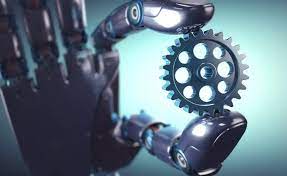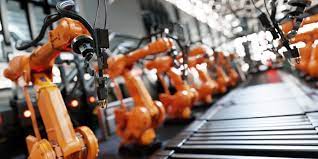Industrial Automation's Impact on The Manufacturing Sector
As manufacturing offices consolidate to a higher level of automation, the demand for new technology grows rapidly. Recent years have reflected the way the industry operates. With the advancing technology ofautomation, now is an excellent time to consider how automation trends will affect the world in the future.
Machine Learning: Improving Precision at Every Stage
Machine learning, which promises a solution to numerous
cutting-edge manufacturing challenges, is one area of innovation that has seen
rapid advancement in the last year. Machine learning refers to software engineering systems that allow a machine to freely accept an assignment rather
than being modified to complete a task.
Machine learning will be of particular interest to
manufacturers with information-rich production lines in the age of big data.
Machines can extract patterns and data from existing datasets using the
innovation.
Potential applications include optical part arranging,
automated quality control, failure recognition, and increased profitability and
proficiency. According to the National Institute of Standards, machine learning
has the potential to increase production capacity by up to 20% while decreasing
material consumption by 4%.
Machine learning calculations can potentially convey greater
precision to each stage of production, and it includes numerous manufacturing
frameworks that can – and do – use machine learning to improve tasks.
Meeting the Demand for Flexibility
Manufacturers will always prioritise meeting customer
demands. Changing buyer needs and preferences require manufacturers to provide
a broader range of products while maintaining product quality and consistency.
Given the aggressive nature of the current business, the ability to create
adaptable production lines is critical.
Manufacturers are increasingly utilising modularization as a
method to seed another market with a specific item in order to demonstrate
client demand before a full-scale execution, thus sparing time and assets.
The world is changing as a result ofdigitalization, and production methods are ensuring long-term competitiveness. Plant operators have reduced their market time and become more flexible in order to respond appropriately. Automation data is fed back to ensure continuous production optimization.




Comments
Post a Comment